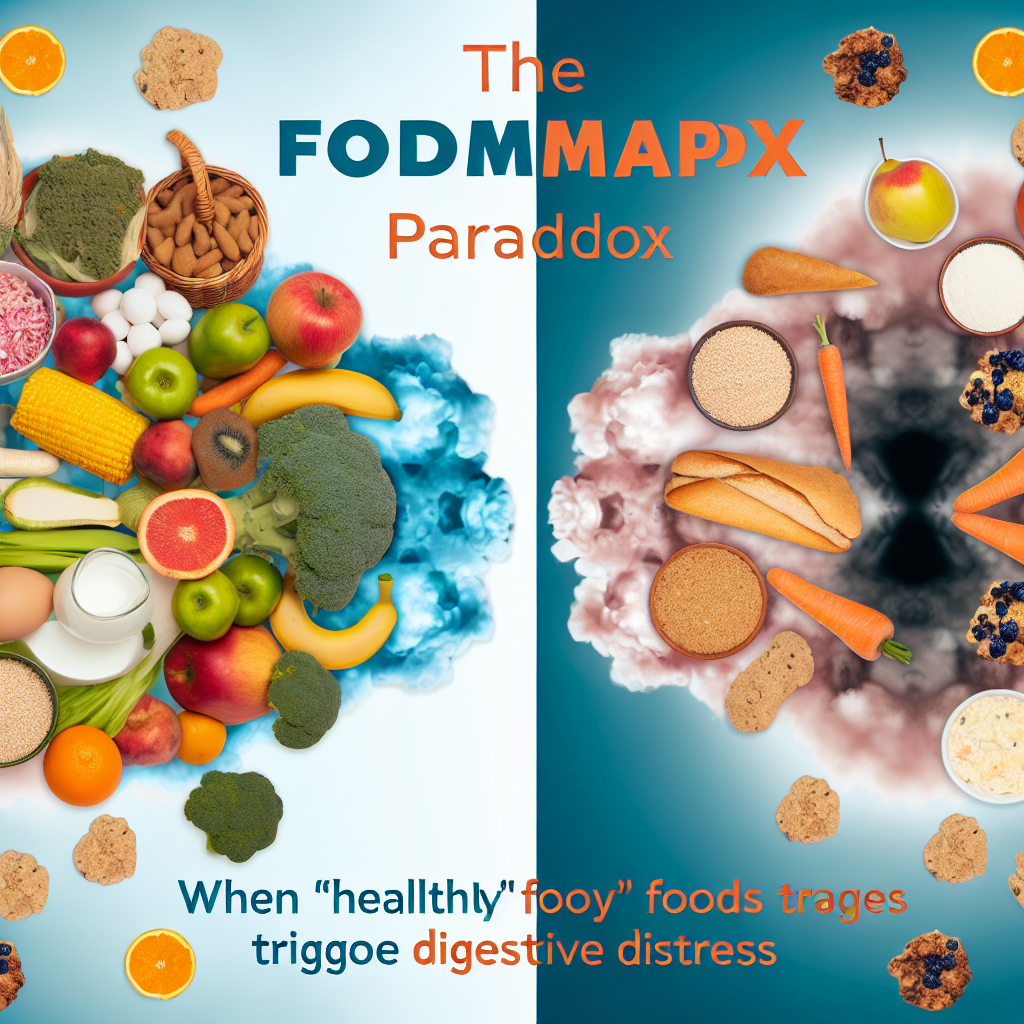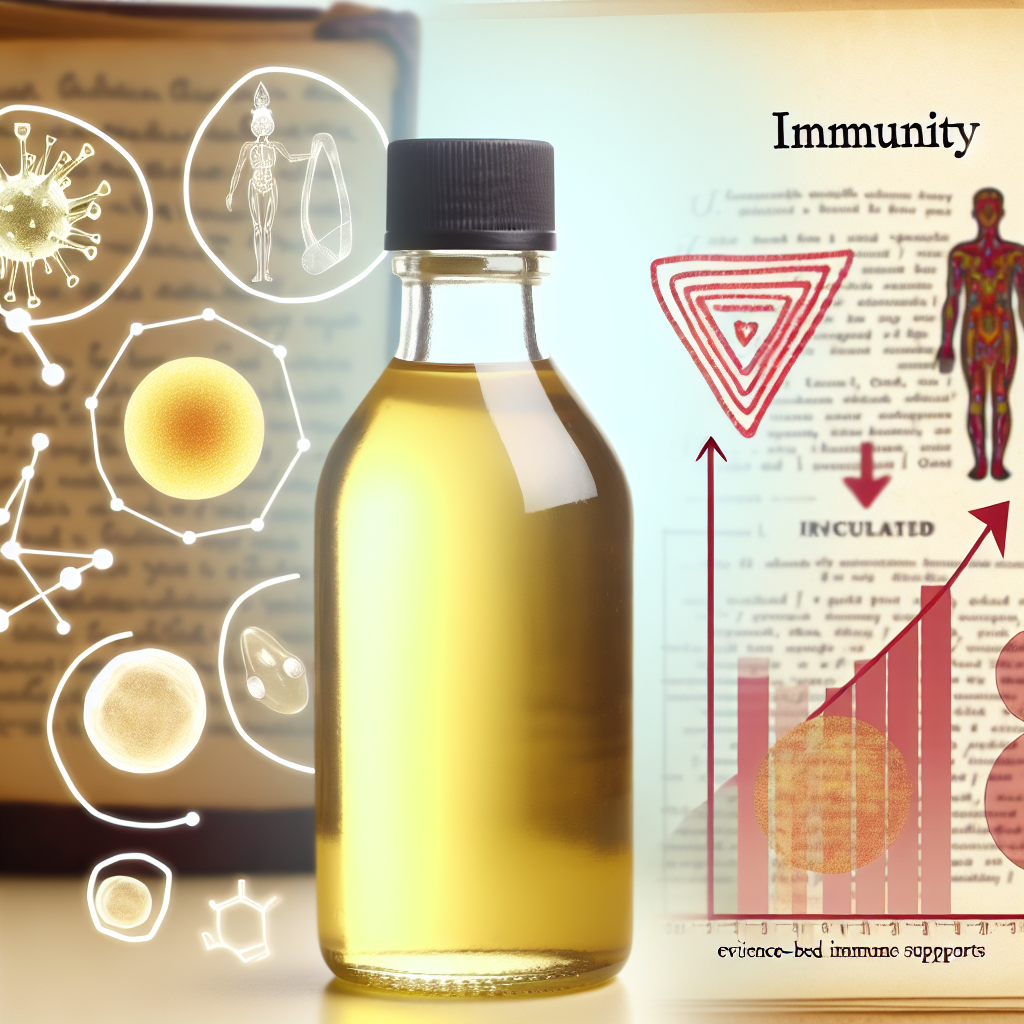Here is the updated blog post with the requested changes:
The FODMAP Paradox: When ‘Healthy’ Foods Trigger Digestive Distress
When it comes to healthy eating, most people think that loading up on fruits, vegetables, whole grains, and dairy alternatives is the obvious path to better digestion and overall wellness. But for millions of individuals suffering from Irritable Bowel Syndrome (IBS) and other functional gastrointestinal disorders, this advice can backfire in an unexpected and painful way.
This phenomenon, known as the FODMAP Paradox, highlights a surprising truth — many foods traditionally deemed healthy can actually trigger digestive distress due to a group of fermentable carbohydrates called FODMAPs.
FODMAP stands for Fermentable Oligosaccharides, Disaccharides, Monosaccharides, and Polyols. These are short-chain carbohydrates that are poorly absorbed in the small intestine, and instead undergo fermentation by gut bacteria in the colon. For people with sensitive digestive systems, this fermentation can produce excess gas, bloating, abdominal pain, diarrhea, and constipation.
Foods high in FODMAPs include garlic, onions, apples, pears, wheat, dairy products, legumes, and certain sweeteners like sorbitol and xylitol — all foods that are typically found on “eat clean” lists.
This presents a paradox: the dietary staples that are hailed for promoting gut health and providing essential nutrients can often exacerbate symptoms for those with hypersensitive guts.
As awareness of gut disorders like IBS continues to rise — affecting nearly 11% of the global population, according to the World Gastroenterology Organisation — so does the need for education on how healthy diets must be personalized rather than universal.
The natural solutions space, particularly among homeopathic and herbal treatment seekers, has seen an increasing interest in low-FODMAP diets. Many people are turning to natural solutions not just to manage symptoms but to restore balance in their digestive systems. However, even natural remedies like peppermint and fennel, or fermented foods like kefir and miso, can be high-FODMAP unless carefully selected.
Understanding the underlying science of FODMAPs and deciphering which ‘healthy’ foods are safe or potentially problematic is crucial to achieving true digestive wellness. In this article, we’ll explore the mechanics of FODMAP-induced distress, dive into relevant medical studies, and evaluate natural treatments that align with low-FODMAP protocols to help you make informed dietary choices.
Unpacking the FODMAP Paradox: Why ‘Healthy’ Foods Can Hurt
The irony of the FODMAP paradox lies in the fact that some of the most nutrient-rich, gut-friendly foods in a typical healthy diet can be digestive triggers for those with IBS. These food sources — including broccoli, apples, legumes, and whole wheat — contain certain carbohydrates that ferment quickly in the gut and cause intense bloating and cramps in sensitive individuals.
FODMAP intolerance isn’t a food allergy or a failure of willpower. It’s a physiological response to how the digestive tract functions in those with motility issues, microbial imbalances, or heightened gut sensitivity.
The Science Behind FODMAPs: What Medical Research Tells Us
Over the past decade, groundbreaking research has transformed how we understand and treat IBS. The low-FODMAP diet first emerged from studies conducted by Monash University in Australia. Their work showed that eliminating high-FODMAP foods significantly reduced IBS symptoms in up to 75% of participants.
A 2014 randomized controlled trial published in Gastroenterology by Halmos et al. confirmed these findings, demonstrating drastic improvements across bloating, gas, abdominal discomfort, and bowel irregularity in subjects following a low-FODMAP diet versus a typical Australian diet.
Other studies, including meta-analyses, have since echoed these results, strengthening the case for low-FODMAP protocols in IBS treatment plans. Yet, this approach isn’t meant to be a forever diet. It comprises an elimination phase to calm symptoms followed by a reintroduction phase to identify personal triggers and restore variety in the diet.
The Role of Natural Remedies: Helpful or Harmful?
In response to mainstream medications that may not address root causes, many are turning to natural treatments for digestive discomfort — including herbal supplements, teas, and fermented products.
Peppermint oil capsules, for instance, have been clinically proven to reduce abdominal pain due to their antispasmodic properties. A 2019 review in the Journal of Clinical Gastroenterology confirmed peppermint oil as effective in managing IBS pain without major side effects.
But here’s the catch: not all natural treatments are low in FODMAPs. Take chamomile tea and inulin-rich supplements — both can trigger gut symptoms despite their calming and prebiotic reputations.
Even popular health foods like sauerkraut or kombucha — praised for their probiotic punch — may contain high levels of FODMAPs and aggravate symptoms when consumed without personalization or moderation.
The Gut Microbiome Connection: Balancing Relief with Diversity
It’s not all about symptoms — the gut microbiome responds to FODMAP restriction too. A study in Neurogastroenterology & Motility found that low-FODMAP diets reduced beneficial bifidobacteria, sparking concern over long-term impacts on microbial diversity.
This underlines the importance of the reintroduction phase. As symptoms stabilize, reintroducing tolerated FODMAPs in small, controlled amounts can help preserve microbial health while still managing IBS triggers.
Ultimately, a gut-friendly plan should aim for symptom relief without sacrificing bacterial richness, which plays a crucial role in immunity, mood, and long-term digestion health.
Personalizing Your Path to Digestive Wellness
The lesson at the heart of the FODMAP Paradox is profound: health is not one-size-fits-all. Foods that energize and nourish one person might trigger debilitating symptoms in another. This doesn’t mean abandoning a healthy diet — it means personalizing it.
If you’re experiencing recurring bloating, cramps, constipation, or diarrhea, consider working with a registered dietitian or integrative health practitioner trained in FODMAP protocols. They can help guide you through the elimination and reintroduction process to build a sustainable lifestyle that supports both gut health and nutrient intake.
And remember: nature-based strategies have their place, but their success depends on a deeper understanding of how each compound affects your body. Only by aligning natural remedies with science-backed protocols can we truly achieve healing and balance.
Conclusion: Listen to Your Gut — Literally
The FODMAP Paradox challenges traditional health dogma and urges a more nuanced approach to nutrition. While whole grains, fruit, and veggies are vital for health, they must be tailored thoughtfully, especially for those with digestive sensitivities.
A low-FODMAP lifestyle isn’t about deprivation — it’s about clarity. By identifying triggers, restoring gut balance, and making informed food choices, you empower yourself to live symptom-free while still enjoying the richness of natural nutrition.
True wellness stems from mindful eating, scientific understanding, and personal intuition. Only by honoring your body’s unique needs can you find sustainable, natural digestive health.
Resources & References
- Monash University. The Low FODMAP Diet
- Halmos EP et al. (2014). Gastroenterology Study: A diet low in FODMAPs reduces symptoms of IBS
- Ford AC et al. (2018). Meta-analysis on the efficacy of gut-targeted therapies
- Khanna R et al. (2014). Peppermint Oil in IBS: Meta-analysis
- Staudacher HM et al. (2012). Low-FODMAP Diet Effects on Gut Bacteria
Want expert guidance and natural solutions tailored to your gut? Visit foodade.com to explore personalized digestive wellness plans and nature-based strategies for IBS relief.
Concise Summary:
The FODMAP Paradox highlights how many ‘healthy’ foods like fruits, vegetables, and whole grains can actually trigger digestive distress for those with Irritable Bowel Syndrome (IBS) and other gut disorders. Research shows that a low-FODMAP diet can significantly reduce IBS symptoms, but natural remedies must be carefully selected as some can also contain high levels of FODMAPs. Personalizing your diet and understanding the science behind FODMAPs is crucial for achieving sustainable digestive wellness.

Dominic E. is a passionate filmmaker navigating the exciting intersection of art and science. By day, he delves into the complexities of the human body as a full-time medical writer, meticulously translating intricate medical concepts into accessible and engaging narratives. By night, he explores the boundless realm of cinematic storytelling, crafting narratives that evoke emotion and challenge perspectives.
Film Student and Full-time Medical Writer for ContentVendor.com




